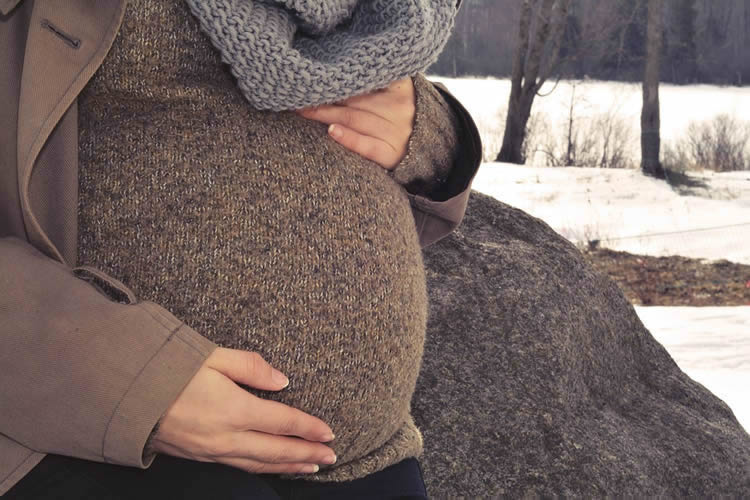Summary: A new study reports women who give birth to boys are at a 79% increased risk of developing postnatal depression than those who birth girls. Researchers also note that women who experience birth complications are 174% more likely to develop PND.
Source: University of Kent.
A University of Kent study into postnatal depression (PND) found the odds of developing this condition increased by 79% when mothers had baby boys compared to baby girls.
Overall the researchers identified that women who give birth to males are 71-79% more likely to develop PND. Furthermore, women whose births had complications were 174% more likely to experience PND compared to those women who had no complications.
As a result of their findings, Dr Sarah Johns and Dr Sarah Myers in the University’s School of Anthropology and Conservation (SAC), conclude that recognising that both male infants and birth complications are PND risk factors should help health professionals in identifying and supporting women who may by more likely to develop this condition.
Their research also showed that while women with a tendency towards symptoms of depression, anxiety, and stress were always at increased risk of PND, they had reduced odds of developing PND after experiencing birth complications. This is likely because these women may receive greater post-birth support because their mental health concerns were previously recognised. This finding suggests interventions to support women can be effective in preventing PND developing.
Dr Johns said: ‘PND is a condition that is avoidable, and it has been shown that giving women at risk extra help and support can make it less likely to develop. The finding that having a baby boy or a difficult birth increases a woman’s risk gives health practitioners two new and easy ways to identify women who would particularly benefit from additional support in the first few weeks and months’

Dr Johns and Dr Myers decided to assess whether there was a relationship between the sex of infants and PND because of the known link between inflammatory immune response and the development of depressive symptoms.
Both the gestation of male foetuses and the experience of birth complications have documented associations with increased inflammation, yet, until this study, their relationships with PND were unclear.
Many known risk factors for depressive symptoms are associated with activation of inflammatory pathways, opening up the potential for identifying new risk factors based on their inflammation causing effects – an idea supported by this study.
The study used complete reproductive histories of 296 women from contemporary, low fertility populations.
Source: Sandy Fleming – University of Kent
Publisher: Organized by NeuroscienceNews.com.
Image Source: NeuroscienceNews.com image is in the public domain.
Original Research: Open access research for “Male infants and birth complications are associated with increased incidence of postnatal depression” by Sarah Myers, and Sarah E. Johns in Social Science and Medicine. Published October 19 2018.
doi:10.1016/j.socscimed.2018.10.008
[cbtabs][cbtab title=”MLA”]University of Kent”Women Who Give Birth to Boys More Likely to Develop Postnatal Depression.” NeuroscienceNews. NeuroscienceNews, 7 November 2018.
<https://neurosciencenews.com/pnd-pregnancy-boys-10162/>.[/cbtab][cbtab title=”APA”]University of Kent(2018, November 7). Women Who Give Birth to Boys More Likely to Develop Postnatal Depression. NeuroscienceNews. Retrieved November 7, 2018 from https://neurosciencenews.com/pnd-pregnancy-boys-10162/[/cbtab][cbtab title=”Chicago”]University of Kent”Women Who Give Birth to Boys More Likely to Develop Postnatal Depression.” https://neurosciencenews.com/pnd-pregnancy-boys-10162/ (accessed November 7, 2018).[/cbtab][/cbtabs]
Abstract
Male infants and birth complications are associated with increased incidence of postnatal depression
Rationale
A growing body of literature links both depressive symptoms generally, and those specifically in the postnatal period, with an inflammatory immune response. Evolutionary medical approaches, such as the Pathogen Host Defence Theory of Depression (PATHOS-D), have likened depression to sickness behaviour in other mammals, and propose that the characteristics associated with depression are protective when an individual is experiencing pathogenic threat. Many known risk factors for depressive symptoms are associated with activation of inflammatory pathways, opening up the potential for identifying novel risk factors based on their inflammation causing effects.
Objective
Both the gestation of male foetuses and the experience of birth complications have documented associations with increased inflammation, yet their relationships with postnatal depression (PND) are currently unclear.
Method
Here we use the complete reproductive histories of 296 women from contemporary, low fertility populations gathered by retrospective survey to assess whether the odds of PND increased when mothers gave birth to male infants or experienced birth complications, using generalised estimating equation models controlling for individual effects of the mother and other known PND risk factors.
Results
We found the odds of PND increased by 71–79% when male infants were born compared to female infants. The occurrence of birth complications increased the odds of PND by 174% compared to having no complications. Testing for interaction effects found that, while always at increased risk of PND, women with a tendency towards symptoms of depression, anxiety, and stress at other points in the life course had reduced odds of PND when experiencing birth complications, suggesting such women may elicit greater support.
Conclusions
These results highlight two novel PND risk factors, male infants and birth complications, which can be easily assessed by health professionals.






